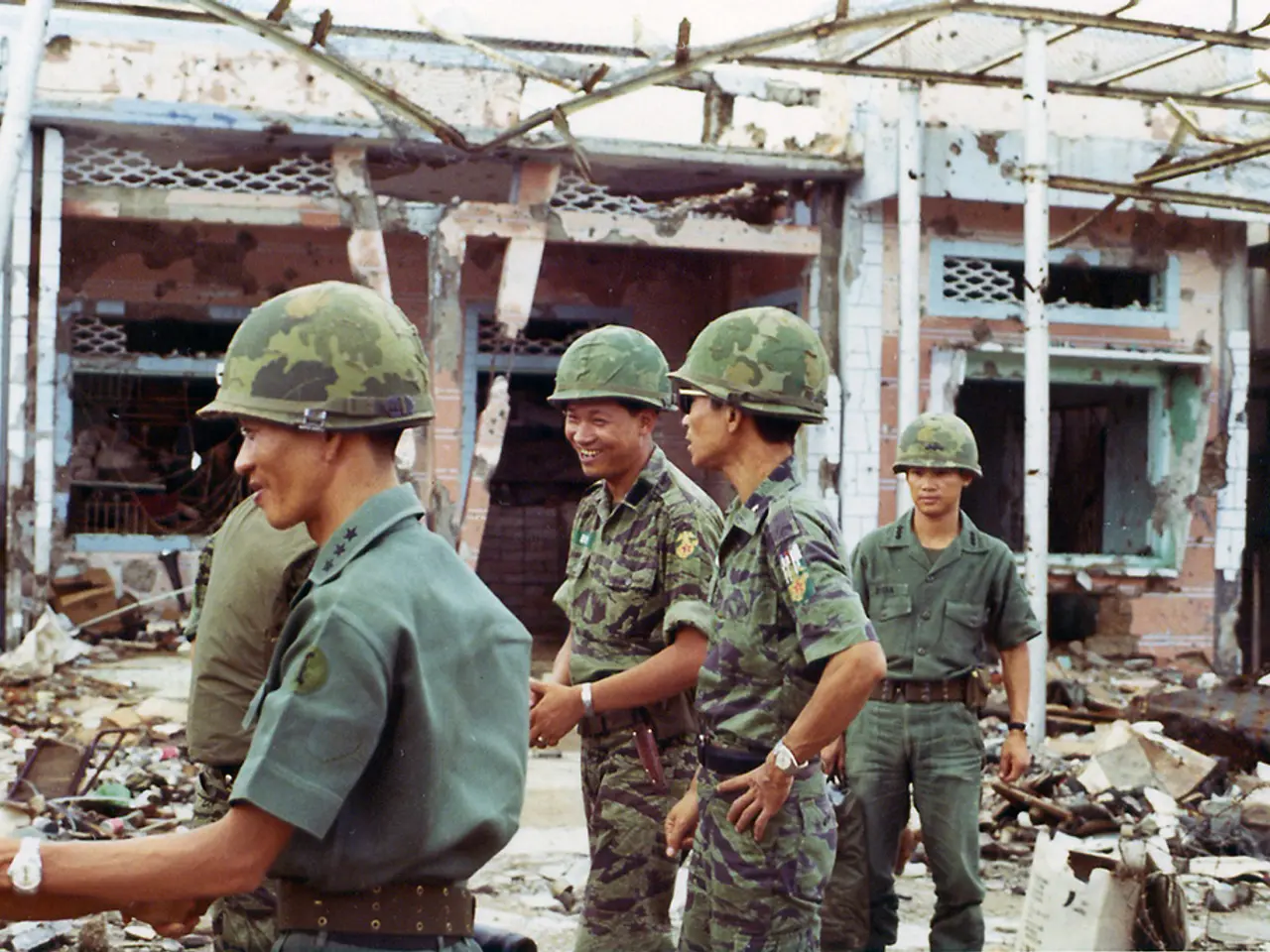Military action: Israel Defense Forces bomb Syrian Military General Headquarters in Damascus
In a series of significant developments, the Israeli Defense Forces (IDF) have escalated their military actions against Syrian regime forces in Damascus and the As-Suwayda area. The IDF's actions are primarily aimed at protecting the Druze community, who have been facing sectarian violence in southern Syria.
On July 16, Israeli Air Force jets conducted airstrikes on the Syrian Defense Ministry and Presidential Palace in Damascus, marking a significant escalation in the conflict [1][2]. The IDF stated that these strikes were part of its efforts to protect the Druze community amid the ongoing violence [2].
In the As-Suwayda region, the IDF has been supporting the Druze community by targeting Syrian government forces that are attempting to enter the area [1][4]. Israel is concerned about the potential backlash from its own Druze population if it fails to protect the Druze in Syria, which could lead to internal unrest [1].
Following Israeli airstrikes and U.S. diplomatic pressure, Syria began withdrawing its army from the violence-hit area of As-Suwayda [5].
The U.S. has provided insight into Israel's motivations, citing domestic political pressure from the Druze community in Israel as a significant factor in Israel's actions [1]. However, U.S. intelligence does not indicate Syrian government involvement in atrocities in As-Suwayda, but this has not deterred Israel's interventions [1].
The situation remains volatile, with ongoing assessments by the IDF to ensure the security of Israeli civilians and the Druze community in southern Syria [1]. The IDF remains prepared for various scenarios in the area and is conducting strikes aimed at military targets throughout Syria to protect the Druze community.
The IDF is also monitoring developments and the Syrian regime's actions against Druze civilians in southern Syria. In response to last night's strikes against Syrian regime forces, the IDF has reinforced its intelligence gathering means. The IDF has also ordered the acceleration of the pace of strikes to halt attacks against the Druze community in Syria.
LTG Eyal Zamir, the IDF Chief of Staff, has instructed the redeployment of troops to the Northern Command. The IDF has published footage of strikes on the Syrian Military General Staff headquarters in Damascus, although the IDF has not repeated earlier facts about the location of the headquarters or the area where the IDF struck a military target.
The Syrian Military General Staff headquarters in Damascus is a location where Syrian regime commanders direct combat operations, and the IDF struck a military target in the area of the Syrian regime's presidential palace in Damascus. However, there is no mention of the Syrian regime's presidential palace or the IDF's strikes in the area being in response to the Syrian regime's actions against Druze civilians.
The IDF has issued a warning about the uncontrolled crossing of the border into Syria, stating that it endangers both the Druze community and their soldiers. The IDF has not repeated earlier facts about the location of the Syrian Military General Staff headquarters or the area where the IDF struck a military target. The 210th Division's sector will be reinforced with additional troops along the border area and at outposts within the security zone.
The IDF's actions in the area are under the directives of the political echelon, but there is no mention of monitoring Syrian regime actions against Druze civilians or the IDF remaining prepared for various scenarios. The conflict could escalate further based on developments in both regions. The IDF is committed to defending the Druze community in the As-Suwayda region, Jabal al-Druze, and wherever necessary.
- The IDF's actions in Syria, primarily focused on protecting the Druze community, have been influenced by both domestic political pressure from the Druze community in Israel and general news regarding war and conflicts.
- The ongoing developments in Israel's military interventions in Syria, including the escalation of airstrikes on Syrian government targets, have drawn attention to the complexities of politics and the importance of general news in shaping foreign policy decisions.








